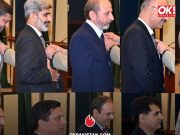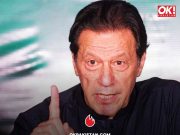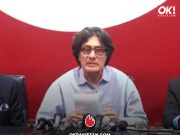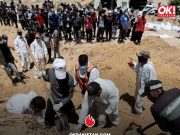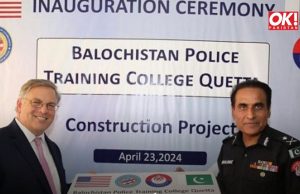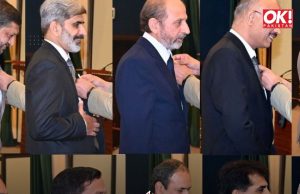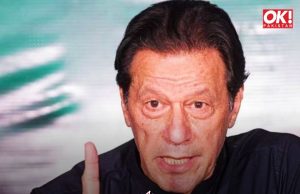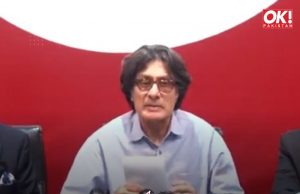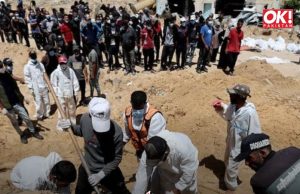Who Taps Phone Calls?
Questions are raised about the legality of leaking private audio recordings.
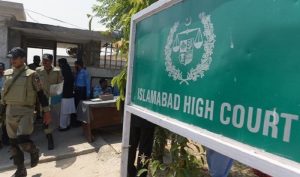 While hearing a case filed by the son of a former chief justice against a parliamentary committee investigating his alleged audios, the Islamabad High Court (IHC) highlighted several questions about the surveillance of private individuals and the legal status of such recordings.
While hearing a case filed by the son of a former chief justice against a parliamentary committee investigating his alleged audios, the Islamabad High Court (IHC) highlighted several questions about the surveillance of private individuals and the legal status of such recordings.
To what extent, if at all, does the assumption of such power trespass upon the domain of the executive, and whether or not parliament has the legal right to enquire into and probe the activities of private persons who hold no public office? as per Thursday’s written order from an IHC bench.
On Wednesday, a case submitted by Najam-us-Saqib, the son of former CJP Mian Naqib Nisar, was heard by a bench consisting of Justice Babar Sattar.
Najam had petitioned the IHC after the speaker of the National Assembly had established an investigative committee to look into two audio snippets that purportedly featured his voice.
In one of the recordings, Najam can be heard boasting to a politician named Abuzar Chadar about how his father, Nisar, “worked really hard” to secure a ticket for Chadar in the upcoming election on the Pakistan Tehreek-e-Insaf (PTI) party.
The second recording is purportedly of Najam discussing the price of a party ticket with one Mian Aziz. The National Assembly passed a motion on May 2 calling for the creation of a special committee to investigate the tapes, and on May 3 the committee was officially established.
Aslam Bhootani, the committee’s chairman, told the media on May 24 that the panel has invited former CJP Nisar, his son Najam, and Mian Aziz and Chadar to its next meeting in connection with its investigation into the leaked audios after its in-camera meeting.
Najam filed a petition on May 30 asking the court to halt the committee’s proceedings and prevent it from adopting any disciplinary action. On Wednesday, the IHC halted the committee’s notice to Najam and others.
Given that the case involves interpreting the constitutional framework of separation of powers, the court nominated senior lawyers Aitzaz Ahsan, Makhdoom Ali Khan, Mian Raza Rabbani, and Mohsin Shahnawaz Ranjha as amici to assist the court in a written order.
The question posed was whether or not the National Assembly speaker has the right to form a special committee to investigate the activities of a private citizen who is not a politician nor a public officeholder, as required by the Constitution and the laws adopted under it to regulate parliamentary procedure.
To what extent, and under what supervisory and regulatory legal environment, is it legal for the executive (here, the federal government) to record or surveil phone calls or telecommunications between private citizens?Who has the legal authority to record phone calls, if any government entity does so at all? Which government body has the authority to strike a fair balance between the interests of the state and the rights of its citizens when it comes to things like recording phone calls or conducting surveillance?
It asked, “Which public authority or agency is to be held liable for such surveillance and encroachment on the right of citizens to liberty and privacy and/or release of illegally recorded private conversations to the public?” in the event that “there is no legal sanction to tap phones, record telecommunication between citizens, or undertake surveillance.”
The court stated that it did not halt the National Assembly circular from May 2 forming the special committee because it understands the importance of moderation and regard to the legislature.
The bench also directed the NA secretary to submit, in paragraph form, her thoughts on whether or not the NA speaker has the authority, under the Constitution, to form investigative committees to listen in on a private citizen’s phone call.
The PM Office, the Ministries of Interior and Defence, and the Pakistan Telecommunication Authority (the country’s telecom regulator) were all named as potential respondents by the IHC.
Please notify the respondents that they have two weeks from June 19 to submit reports and paraphrased comments. The study will detail whether or not a legal framework exists for recording telephone conversations between residents, with responses from respondents No. 1 and 5–8.
“[If the answer is yes, then the report will describe the legal and oversight procedures for recording telephone conversations and the electronic transmission of data and messages between private citizens.”These respondents will also name the organisations and companies with the resources to monitor and record telephone conversations.
To the extent that any phone calls are permitted by law to be recorded, their confidentiality will be preserved and any such recording will not be leaked or used for extraneous purposes, and the reports will identify the legal mechanism for grant of permission, authorising recording of telephone conversations between citizens and the safeguards adopted to ensure that.
“Respondents No. 1 and 5–8 will also explain whether or not they have taken any action to determine who has or is secretly recording the conversations of citizens,” the petition reads.
Since the federal government is aware of these leaks, it has formed a committee to investigate whether or not the recordings are genuine. “[They will explain] how such conversations are being released to the public,” the document says.




